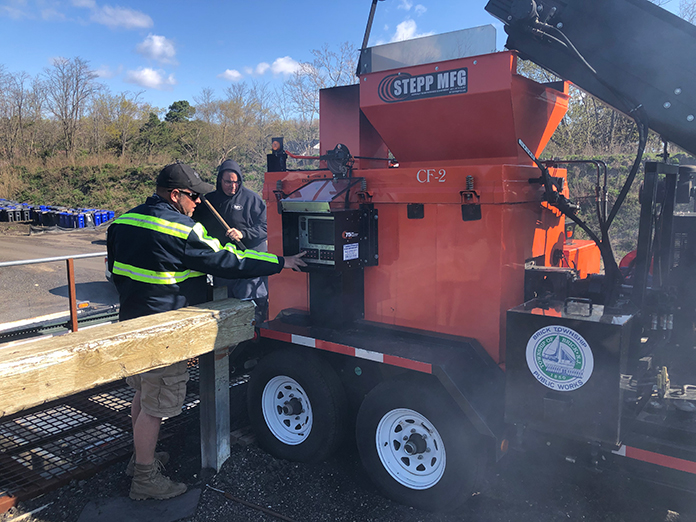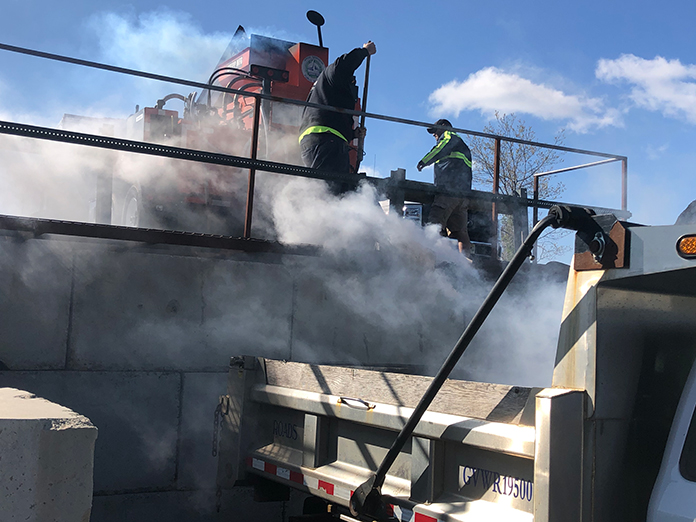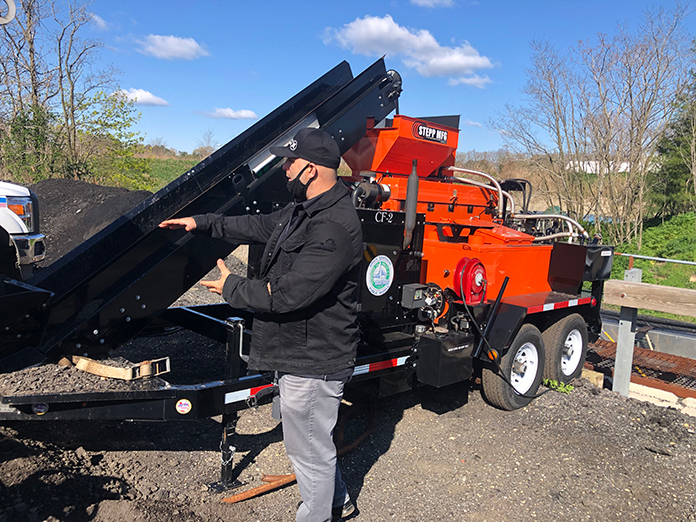
BRICK – Spring brings blooming trees, nesting birds, and the inevitable abundance of potholes, caused by the expansion and contraction of water that has entered the ground under the road’s surface. Coupled with the weight of cars and trucks passing over the weak spot in the road, the asphalt cracks and breaks down.
The township’s pothole repair program is in full swing. The pothole hotline gets some 10 to 20 calls a day this time of year, and crews can fill about 40 a day. Potholes can cause damage to tires, wheels, suspension and steering, and they are a danger to drivers and pedestrians everywhere.

That’s true, said Department of Public Works (DPW) Supervisor TJ Ventorino. “Potholes can become very dangerous, so we have to take care of them as soon as possible,” he said from the department’s Ridge Road facility recently.
The pothole “hotbox” truck is currently out of commission for a couple of weeks, so while it’s being repaired, the department is running two mason dump trucks in its place – one on the north side of town, the other on the south side – that are strictly for pothole repair.
“We get a lot of complaints where the asphalt has become broken and cracked in a large area of a road, so what we do is make it safe for now and put it on the list to mill and pave it,” he said. “We know that just putting blacktop in an area that needs to be milled and paved is not going to stay.”
Ventorino said they try to let nearby residents know that the fix is temporary, and that crews will be back to mill and pave. The DPW has purchased a paving machine and a small miller attachment that connects to a Bobcat and has the ability to mill and pave “decent sized sections,” he said.
It was Ventorino’s idea for the township to purchase an asphalt recycler, which takes stockpiled broken asphalt (blacktop from township road repair jobs), and millings, which are heated up, rotated, and sent down a chute into the hotbox truck.

“Anybody that uses cold patch – which is basically asphalt that has oil in it – you just basically throw it in the pothole and it gets packed down, but it really doesn’t stay,” he said. “You drive over it and it gets all over your car, and it’s not cheap.”’
The recycler, which heats the material to 700 degrees, saves the township some $60,000 a year in two ways: there is no need to buy cold patch fill, and there are no longer associated costs to dispose of the asphalt at the county recycling center, and the heated material lasts longer than cold patch, Ventorino said.
It can recycle about three tons of asphalt an hour. The hotbox truck holds five tons, so when it’s fully loaded it holds enough to last all day, he said.
The department fills potholes year-round. Most other municipalities are forced to use cold patch since the asphalt plants close down during the cold months.

Ventorino is a co-supervisor at the DPW along with Steve Krakovsky since the director Ken Mathis retired earlier this year.
The two are ensuring that operations run smoothly and efficiently, said Township Business Administrator Joanne Bergin. The township would be appointing a Superintendent of Public Works sometime in the future, she said.
To report a pothole on a township road, call the DPW at 732 451-4060.






